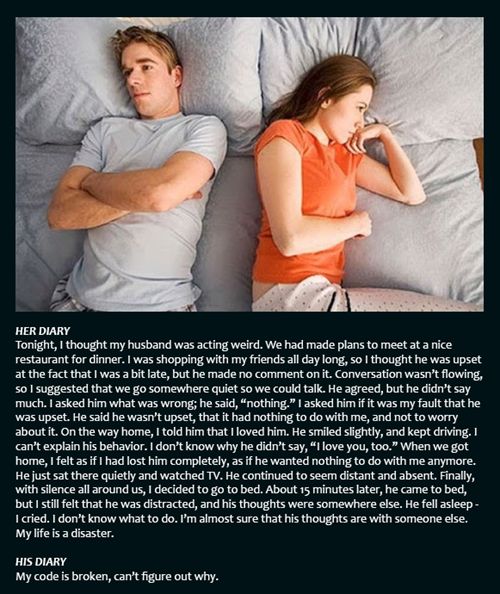I am fascinated by the idiosyncrasies of the human mind. This is an ever expanding collection of my finds: biases, assumptions, adaptive mechanisms and shortcuts. I don’t recommend reading all of these books – some are (much) better than others, but here are the highlights by theme.
Awareness
We often deal with difficult questions by answering an easier one instead, usually without noticing the substitution. Is Jenny good at her job? becomes Do I like Jenny? [Thinking Fast and Slow by Daniel Kahneman]
It’s impossible to learn if you think you already know it. [Ego Is the Enemy by Ryan Holiday]
Self-awareness comes in layers. The first is to recognise an emotion. The second is to ask why the emotion is there. Usually it is due to some event occurring: e.g. a piece of news, a breakup, a raise, someone looked at you funny, etc. The third is to acknowledge what meaning you ascribed to this event through your values and rules. For example, you may believe that someone breaking up with you means you’re not good enough as a person, or that getting a raise is a consequence of your hard work. The more important the relevant value is in the hierarchy of values, the more intense the emotion. The way you decide your values makes all the difference to how you feel. [The Subtle Art of Not Giving a F-ck by Mark Manson]
Emotional contagion is a real thing. [Emotional Intelligence by Daniel Goleman]
We think that other people pay much more attention to us than they actually do. [Mindwise… by Nicholas Epley]
We tend to assume that others see the world similarly to the way we do. [Mindwise… by Nicholas Epley]
When your working memory is occupied, your ability to think is compromised. [Thinking Fast and Slow by Daniel Kahneman]
Priming: our actions and emotions are affected by things we are often unaware of. [Thinking Fast and Slow by Daniel Kahneman]
Naïve realism: the feeling that we see the world as it actually is, rather than through the lens of our perception. [Mindwise… by Nicholas Epley]
We are aware of the brain’s finished products, e.g. conclusions, theories, beliefs, emotions, but not so much how these were arrived at. Hence, it is difficult to recognise one’s own errors of cognition/assumptions. [Mindwise… by Nicholas Epley]
Surprise leads to enhance conscious attention. [Thinking Fast and Slow by Daniel Kahneman]
People believe that they are more attractive than they actually are. This is why most of pictures look so bad. [Mindwise… by Nicholas Epley]
Our brains are story telling machines. If we don’t know the facts, the brain will pad the story with assumptions. [Mindwise… by Nicholas Epley] It is easier to come up with a story that makes sense when you know fewer facts – as it is a simpler puzzle to solve. This is because we have an unbelievably powerful way of ignoring what we don’t know. [Thinking Fast and Slow by Daniel Kahneman]
“The media” are frequently accused of being biased. However, they never seems to be accused of being biased in favour of those accusing it. [Mindwise… by Nicholas Epley]
God always seems to agree with the person citing him. [Mindwise… by Nicholas Epley]
We have an overwhelming need to be consistent. We assume that other’s are consistent too, it’s called the halo effect. In our minds, a brilliant pianist is automatically a great driver and family man. However, a convicted criminal is automatically an aggressive driver and a wife-beater. [Thinking Fast and Slow by Daniel Kahneman]
Desiring a positive experience is a negative experience. However, accepting a negative experience is a positive experience.The more you want X, the more 1/X you will feel. This applies to wanting to improve your appearance, mood and spirituality. The key point of the book, phrased more civilly, is to play to your strengths. [The Subtle Art of Not Giving a F-ck by Mark Manson]
Leaving your sense of self open to be influenced by external circumstances is dangeorous.
The narcissistically inclined live in an unwalled city. [Ego Is the Enemy by Ryan Holiday]
What feels bad isn’t necessarily bad and vice versa. Negative feelings are biology’s way to draw our attention to a (potential) problem. [The Subtle Art of Not Giving a F-ck by Mark Manson] [Principles by Ray Dalio]
Feeling bad is made worse by taking things personally, believing that it’s going to last forever and affects absolutely every area of your life. [Multiple works by Martin Seligman]

Time
Future-oriented people tend to be more successful professionally and academically, to eat well, to exercise regularly, and to schedule preventative doctor’s exams. But they are the least likely to help others in need. When faced with a choice to engage in a behaviour, future-oriented people believe that they are choosing the consequences, rather than the behaviour. [The Time Paradox by Philip Zimbardo and John Boyd]
Present-oriented people tend to be willing to help others, but appear less willing or able to help themselves. They are the least likely to be successful. Good leaders are in the moment and have a way of communicating this to their audience to make them feel like they are the leader’s sole focus. [The Time Paradox by Philip Zimbardo and John Boyd]
How we think and feel today influences how we remember yesterday. [The Time Paradox by Philip Zimbardo and John Boyd]
Anything that limits our sense of an unlimited future changes our motivations and priorities so that they now focus on emotional satisfaction in the present. Those who feel like the future in unlimited, favour quantity over quality: more friends, more hobbies, etc. Those who feel the future in only short, e.g. due to a terminal disease, favour quality over quantity. [The Time Paradox by Philip Zimbardo and John Boyd] This is interesting in the context of stoic philosophy.
Money
We respond to a change in wealth in a measure that is inversely proportional to the initial amount of wealth. [Thinking Fast and Slow by Daniel Kahneman]
We take on more risk when all our options are bad. [Thinking Fast and Slow by Daniel Kahneman]
We perceive value as relating to gains and losses rather than to wealth. [Thinking Fast and Slow by Daniel Kahneman]
Having explicit goals has a positive impact on achievement. [Thinking Fast and Slow by Daniel Kahneman]
Understanding other people
Spending more time together doesn’t help you read the mind of the other person. It gives you the illusion that you can. [Mindwise… by Nicholas Epley]
Emotion is carried through voice more than it is through visual expression. [Mindwise… by Nicholas Epley]
Reading body language and trying to take on the other’s perspective doesn’t seem to help to understand the person better. What does help is creating situations where people can openly tell you what they think – and listen carefully. [Mindwise… by Nicholas Epley]
A quick way to build rapport with someone is to unveil private thoughts or memories to each other. [Mindwise… by Nicholas Epley]
A relationship is more likely to succeed if bad experiences are avoided. It has less to do with the good experiences.[Thinking Fast and Slow by Daniel Kahneman]
Body language
We smile when we feel happy, but also, when we’re forced to smile by holding a pen in our teeth, it makes us feel happy. [Amy Cuddy: Your body language shapes who you are]
Two minutes in a power pose (think Wonder Woman or Usain Bolt crossing the finish line) lead to these hormonal changes in cortisol and testosterone that configure your brain to be assertive, confident and comfortable. Conversely, a small pose (arms and legs crossed) leads to changes that cause you to be stress-reactive, and feeling shut down. [Amy Cuddy: Your body language shapes who you are]
When you are in the high-power pose condition, it causes you to take more risks. [Amy Cuddy: Your body language shapes who you are]
It is difficult to empathise with a person fully until you assume their physical position. [Emotional Intelligence by Daniel Goleman]
People who have had Botox have duller social senses being unable to mimic the facial expressions of others. [Mindwise… by Nicholas Epley]

We love echo chambers
Confirmation bias: we pay attention to the facts that confirm our point of view more that the ones that refute it. [Thinking Fast and Slow by Daniel Kahneman] When volunteers were told that they have poor IQ scores and given the opportunity to read up on IQ tests, they paid more attention to articles that questioned the validity of IQ tests than articles that validated them. [Stumbling upon Happiness by Daniel Gilbert]
The part of the brain that is involved in trying to understand what others are thinking, the medial prefrontal cortex, is more engaged more when you’re thinking about yourself, your close friends and family, and others who have values close to your own. [Mindwise… by Nicholas Epley]
How we are sold
Shoppers were shown four identical pairs of stockings. They didn’t know that they were identical. Shoppers always preferred the stockings on the far right, they were the last that they examined. [Mindwise… by Nicholas Epley]
Making people want the right things
Changing the context is far more effective than changing individual minds. Otherwise cleanly people will litter if there’s already rubbish on the floor. [Mindwise… by Nicholas Epley]
Economies grow only if people are deluded into believing that the production of wealth will make them happy. [Stumbling upon Happiness by Daniel Gilbert]

Black swans
Our memories cling onto the most outstanding, least likely things. Hence, when we predict the future, we tend to assign erroneously large probabilities to unlikely events.[Stumbling upon Happiness by Daniel Gilbert]
Predictions based on intuition tend to be overconfident and overly extreme. [Thinking Fast and Slow by Daniel Kahneman]
When we’re not sure about the probability of something, the best course of action is to default to the base rate and the propensity to revert to the mean. [Thinking Fast and Slow by Daniel Kahneman]
We crave uniqueness
We crave the feeling of being unique and constantly seek evidence to back it up. [Stumbling upon Happiness by Daniel Gilbert]
We are much more likely to notice an opportunity to develop if it makes us feel significant. [Ego Is the Enemy by Ryan Holiday]
A man who claims to be searching for himself is looking for a sense of distinction. [Mindwise… by Nicholas Epley]
We are what we do – not what we think, say or feel. [Too Soon Old, Too Late Smart by Gordon Livingston]
People tend to overestimate the differences between us and other people. This has implications for religious, racial and other conflict. [Mindwise… by Nicholas Epley]
Opinion vs experience
Expert opinions are not significantly more reliable than nonspecialists. [Expert Political Judgment… by Philip Tetlock]
Falsehoods will be accepted as the truth through frequent repetition. [Thinking Fast and Slow by Daniel Kahneman]
Virtually everybody sees themselves as above average. [Stumbling upon Happiness by Daniel Gilbert] [Thinking Fast and Slow by Daniel Kahneman]
Our bias towards seeing ourselves as above average is accompanied by the perception that we are also less biased than average. [Stumbling upon Happiness by Daniel Gilbert]
We seek to change our experience before we look to change our attitude to it. We don’t automatically look for silver linings. [Stumbling upon Happiness by Daniel Gilbert]
We become less confident in a decisions when we are asked to produce more arguments to support it. [Thinking Fast and Slow by Daniel Kahneman]
We rate something based on the memory of the most intense point and the end point of an experience. Hence, an experience of consistent low-intensity pain is remembered as being better than a few intense shocks. [Thinking Fast and Slow by Daniel Kahneman]
Intense shocks trigger psychological defences, but the mild shocks do not. That’s why you could forgive your spouse for cheating but stay angry about the dishes. [Stumbling upon Happiness by Daniel Gilbert]
A good strategy to predict how we will feel is to find someone who just went through the experience and ask them how they feel. [Stumbling upon Happiness by Daniel Gilbert]
We find cognitive effort at least mildly unpleasant and avoid it as much as possible. [Thinking Fast and Slow by Daniel Kahneman]
If we deliberately avoid chasing short-term outcomes, the quality of our decisions and outcomes improves. [Thinking Fast and Slow by Daniel Kahneman]
We are obsessed with sunk-costs. This fallacy keeps people locked into situations that they should have left a long time ago. [Thinking Fast and Slow by Daniel Kahneman]
The planning fallacy: people are overly optimistic when they make plans. [Thinking Fast and Slow by Daniel Kahneman]

I know one thing: that I know nothing
It is virtually impossible to remember what it’s like not knowing a fact/skill once you know it. [Mindwise… by Nicholas Epley] The jury cannot disregard the prosecutor’s snide remarks. [Stumbling upon Happiness by Daniel Gilbert] We cannot reconstruct past states of knowledge. [Thinking Fast and Slow by Daniel Kahneman] I wonder about that. Is that not how negotiations work? Is that not how we lie to someone?
What we call “fact” is simply conjectures that have met a certain minimum standard of proof. [Stumbling upon Happiness by Daniel Gilbert]
People prefer certainty and clarity over uncertainty and mystery. While increasing our chances of survival they diminish happiness. [Stumbling upon Happiness by Daniel Gilbert]
We look for causal relationships to situations that require statistical reasoning. [Thinking Fast and Slow by Daniel Kahneman]
Happiness
Happiness is determined by expectations and our history rather than by real events alone. [Thinking Fast and Slow by Daniel Kahneman]
Deliberate attempts to feel happy tend to lead to feeling worse than we did before. [Stumbling upon Happiness by Daniel Gilbert]
We think that we will regret bad actions more than bad omissions. However, 90% of people regret not having done things. [Stumbling upon Happiness by Daniel Gilbert]
“Presentism”: we tend to evaluate historical figures using the values of our own time. Judging Thomas Jefferson for having slaves or Sigmund Freud for patronising women is like arresting someone today for having driven without a seat belt in 1923. [Stumbling upon Happiness by Daniel Gilbert]
We consistently overestimate how bad we will feel and how long this feeling will last if something bad happens. [Stumbling upon Happiness by Daniel Gilbert]
We only care about a parameter when it is highlighted through side-by-side comparison. [Stumbling upon Happiness by Daniel Gilbert]
Optimism is largely inherited. Optimists perform better. They take on more risks that they realise and bounce back from failure more easily. [Thinking Fast and Slow by Daniel Kahneman]

Motivation
People will work harder to avoid bad things than to get good things. It’s a consequence of loss aversion. [Thinking Fast and Slow by Daniel Kahneman]
It is easier to assume that you’re going to fail than actually testing it. [The Subtle Art of Not Giving a F-ck by Mark Manson]
A sense of control over the outcome is very important to motivation. We have control over how we assign values and thus perceive the world as well as what way we’re going to act [Multiple works by Martin Seligman] The more choices we are able to exercise, the happier we are likely to be. [Too Soon Old, Too Late Smart by Gordon Livingston]
We are more motivated to avoid bad self-definitions than to go after good ones. [Thinking Fast and Slow by Daniel Kahneman]
When believe that you can achieve something, you work harder. [The Time Paradox by Philip Zimbardo and John Boyd]
Repeated failure in early life creates a sense of learned helplessness and leads you to give up on that area of performance. [The Time Paradox by Philip Zimbardo and John Boyd]
Mentally rehearsing reaching goals step-by-step helps to achieve them. [The Time Paradox by Philip Zimbardo and John Boyd] [Principles by Ray Dalio]
Happiness and self-respect are our strongest desires. [Too Soon Old, Too Late Smart by Gordon Livingston]
Giving up on a dream isn’t always failure. Sometimes we make wrong decisions about what we aspire to (assuming that that in and of itself isn’t a failure). [The Subtle Art of Not Giving a F-ck by Mark Manson]
Anyone who gets really good at something have a belief that there’s lot os room for improvement. They doubt their work a lot. It’s beneficial to accept the possibility of being wrong unemotionally. [The Subtle Art of Not Giving a F-ck by Mark Manson]
Meaning and significant accomplishment is only possible through focusing and saying no. It means massive opportunity cost and less freedom, hence, few people do it. [The Subtle Art of Not Giving a F-ck by Mark Manson] [Ego Is the Enemy by Ryan Holiday]
Intuition
People taking a test do much better when they are in a good mood. They become more creative. They also become more prone to logical errors. Unhappy test subjects were shown to be incapable of performing an intuitive task well. Mood affects our intuition.[Thinking Fast and Slow by Daniel Kahneman]
Mood
People in depression focus on the past. They feel that ruminating on the causes of their symptoms will help solve their problems. This only leads into a downward spiral. [The Time Paradox by Philip Zimbardo and John Boyd]








